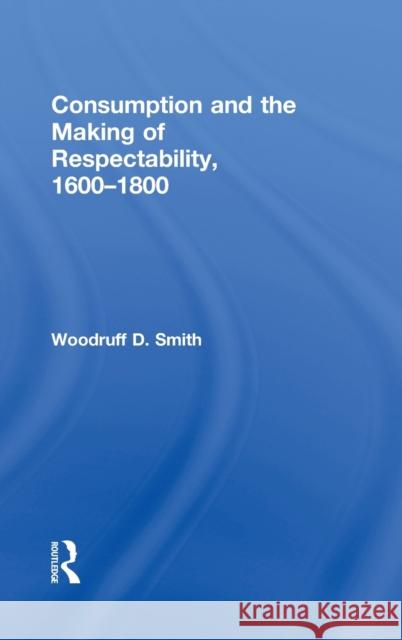Consumption and the Making of Respectability, 1600-1800 » książka
Consumption and the Making of Respectability, 1600-1800
ISBN-13: 9780415933285 / Angielski / Twarda / 2002 / 352 str.
During the 1980s and 1990s questions concerning the nature of early modern European consumption have increasingly become the object of critical focus for historians, cultural theorists, and readers interested in the history of material cultures. Why did such changes arise? Did they create a consumer society in the 18th century? What relationships did they bear to the Industrial Revolution, to colonialism, and to modernization in general. In this book, historian Woodruff Smith focuses on the radical alterations that occurred between 1600 and 1800 in European consumption of commodities produced overseas: cotton and silk textiles, sugar, pepper, spices, coffee, tea, porcelain, and tobacco. In analyzing these trends of consumption, he provides a significant and seldom-investigated process of cultural construction: the tying together of several distinct cultural patterns during this century to create a culture of respectability and its impact on popular culture, trade, politics, social dynamics, and literature. This work provides a comprehensive understanding of the origins of modern consumption and all of its cultural implications.











